Are you considering taking the leap into the world of franchising? A well-crafted franchise agreement proposal is essential for setting clear expectations and fostering a successful partnership. This document not only outlines the rights and responsibilities of both parties but also serves as a roadmap for growth and collaboration. Join us as we delve deeper into the key elements of an effective franchise agreement proposal, ensuring your venture is on the right path!

Comprehensive business model outline
A comprehensive business model outline for a franchise agreement proposal involves detailed components that outline operations, marketing, and financial aspects. The operations section includes aspects like inventory management systems, training programs for franchisees, and standardized operating procedures to ensure consistency across locations. The marketing components highlight brand positioning strategies, promotional tactics, and digital marketing initiatives tailored to target audiences. Financial aspects encompass comprehensive start-up costs (often ranging from $50,000 to over $500,000, depending on the industry), ongoing royalty fees, and projections for return on investment (ROI) over a three to five-year period. Additionally, the territory specifications detail exclusive operational zones, addressing market saturation concerns. By focusing on these critical elements, the proposal can showcase a robust framework for sustainable growth and profitability within the franchise system.
Clear financial projections and terms
A franchise agreement proposal should outline clear financial projections and terms for potential franchisees. Initial investment costs, including franchise fees, equipment expenses, and property rental, must be detailed. For example, a franchise fee of $50,000 might be required, alongside estimated startup costs ranging from $150,000 to $300,000, depending on location and market conditions. Additionally, royalty fees should be specified, often around 6% of gross sales, providing a consistent revenue stream for the franchisor. Financial projections over the first five years should include growth estimates, anticipated revenue, and profitability timelines. For instance, year one might project total sales of $250,000, with a net profit margin of approximately 10%, leading to a potential profit of $25,000. Understanding these financial frameworks can significantly enhance the comprehensiveness of the proposal, facilitating informed decision-making for prospective franchise partners.
Defined intellectual property usage
A franchise agreement proposal must outline the defined usage of intellectual property (IP), critical for brand consistency and legal protection. Trademarks, trade dress, or patented products (e.g., food recipes) must be clearly identified to avoid infringement issues. Specific terms regarding the duration of IP usage should be included, typically spanning 5 to 20 years. Geographic restrictions are essential to prevent overlap in franchise territories. Detailed guidelines on branding materials must align with standards set by the franchisor to protect the brand image, ensuring uniformity across all franchise locations. Compliance with local laws and regulations is necessary, particularly for franchising in regions such as the European Union or United States, where IP laws differ significantly. Regular audits or inspections may be required to ensure adherence to these defined usage rights, protecting both the franchisor's assets and the franchisee's investment.
Detailed operational guidelines
A franchise agreement proposal must outline detailed operational guidelines that ensure consistency and quality across all franchise locations. Essential elements include comprehensive training programs designed for franchisees, covering key operational aspects such as staff management, customer service protocols, and inventory control measures. Specific marketing strategies, tailored to regional demographics and consumer behaviors, should be included to drive brand awareness and sales performance. Additionally, guidelines for maintaining equipment, adhering to health regulations, and implementing safety standards, particularly in food service industries, are critical for compliance and risk management. Regular performance evaluation processes, including metrics for financial accountability and customer satisfaction, will help sustain operational excellence in all franchise units, fostering a cohesive brand identity.
Terms of termination and dispute resolution
The termination of a franchise agreement can occur under various conditions, such as breach of contract, insolvency, or voluntary termination by the franchisee. Specific notice periods, often ranging from 30 to 90 days, must be adhered to for effective termination. The agreement should also outline grounds for immediate termination, such as illegal activities affecting brand reputation. In the event of disputes, mediation is preferred before escalating to arbitration or litigation. Jurisdiction will typically fall within the state laws where the franchise is established. Both parties must agree on the selection of a neutral arbitrator, with costs typically shared equally. These terms are crucial for ensuring clarity and compliance throughout the franchise relationship, promoting fair resolution to any potential conflicts.

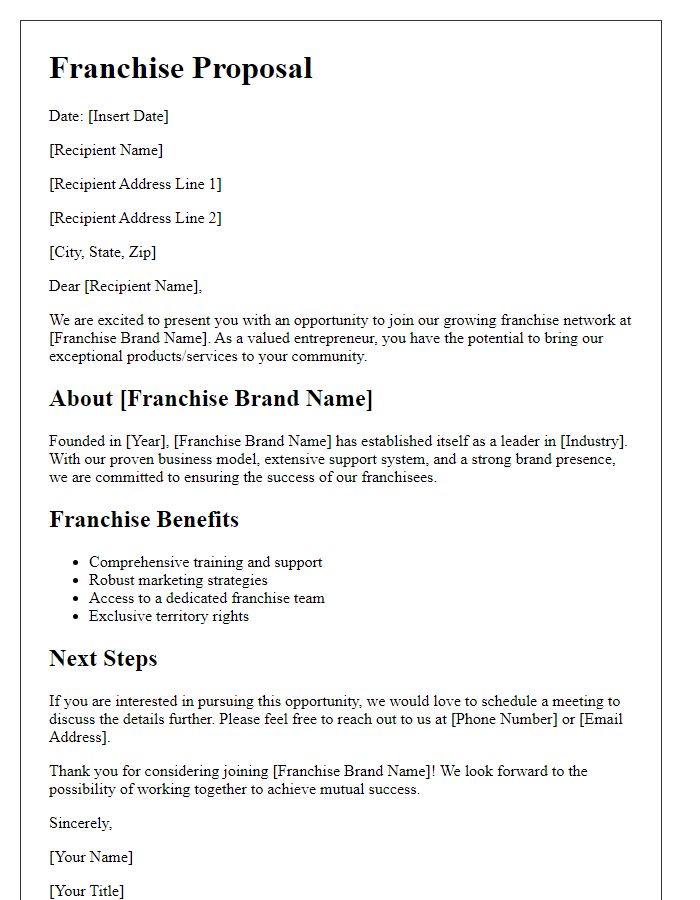
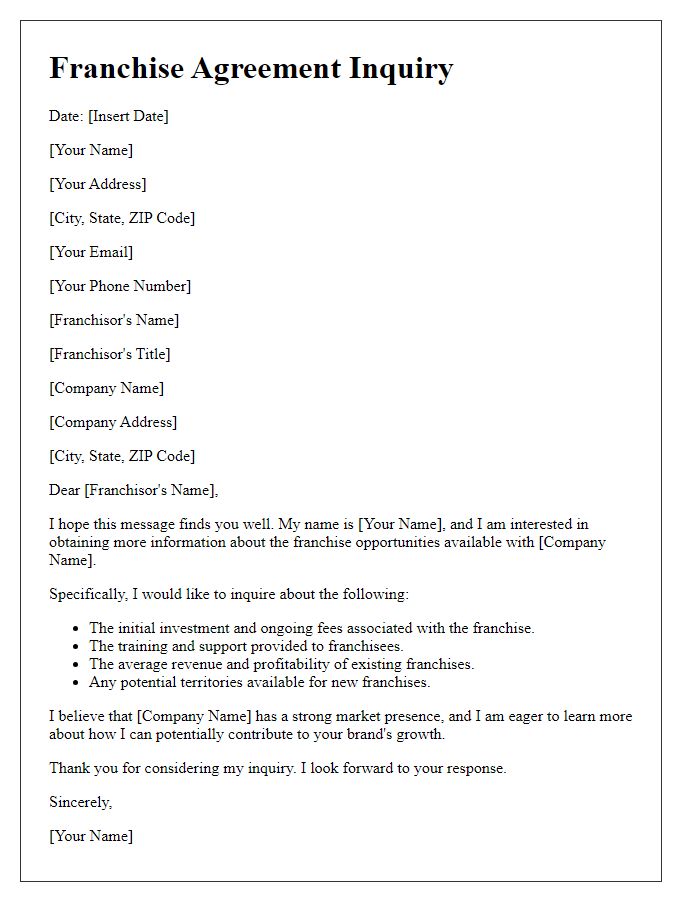
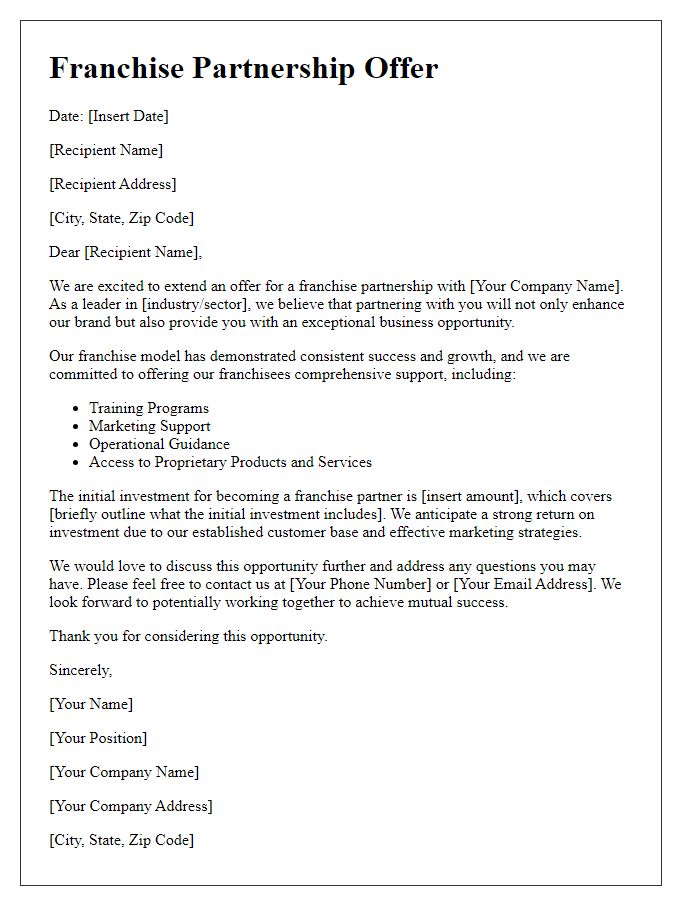
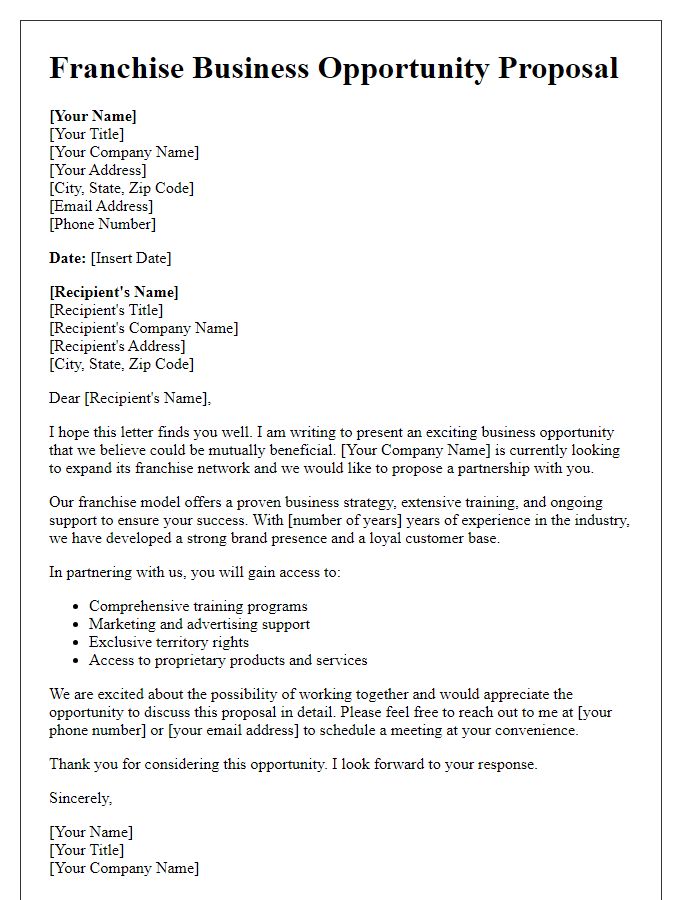
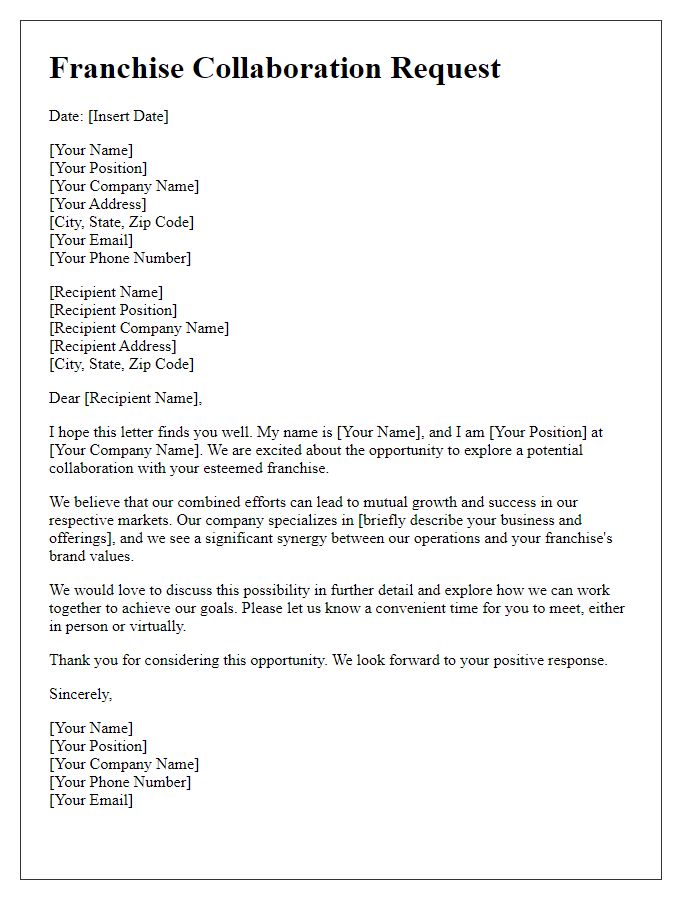
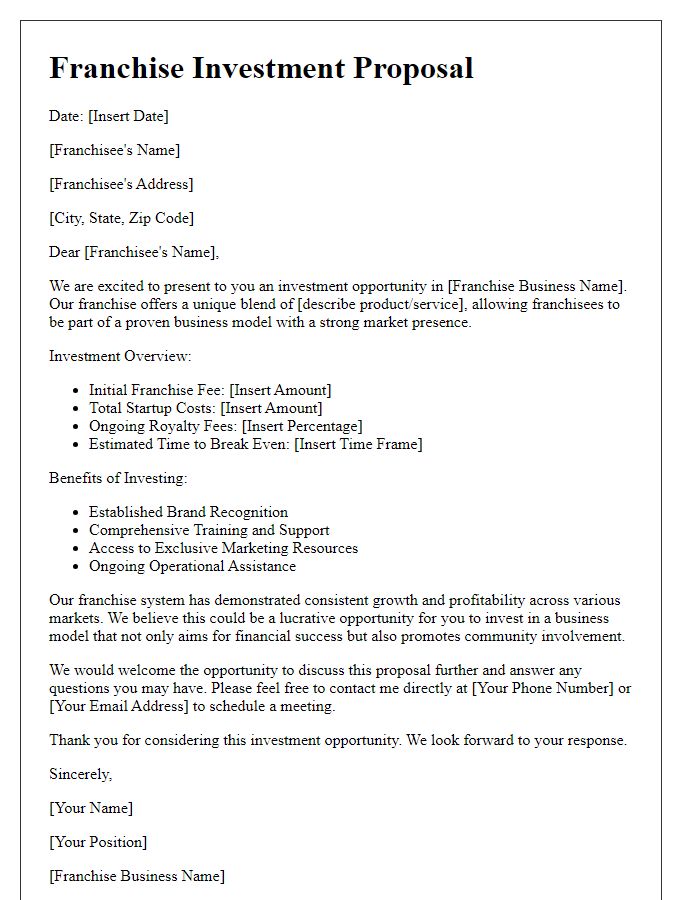
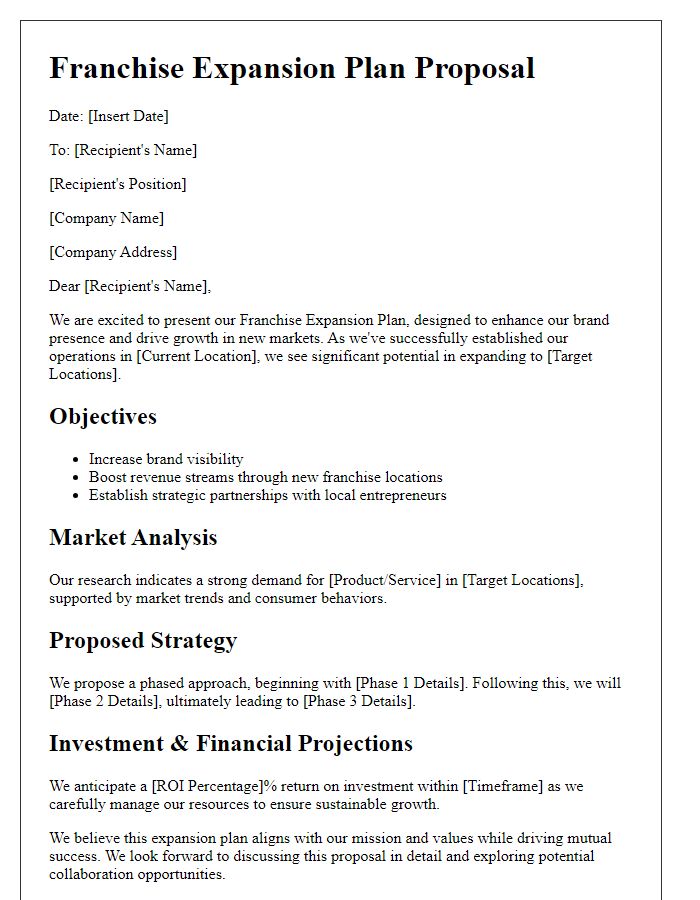
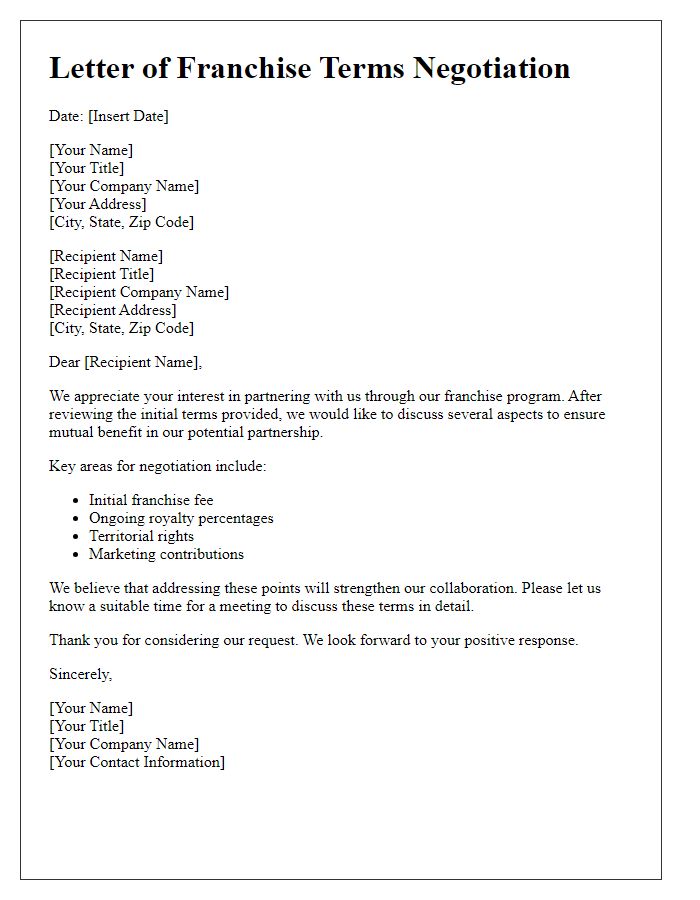
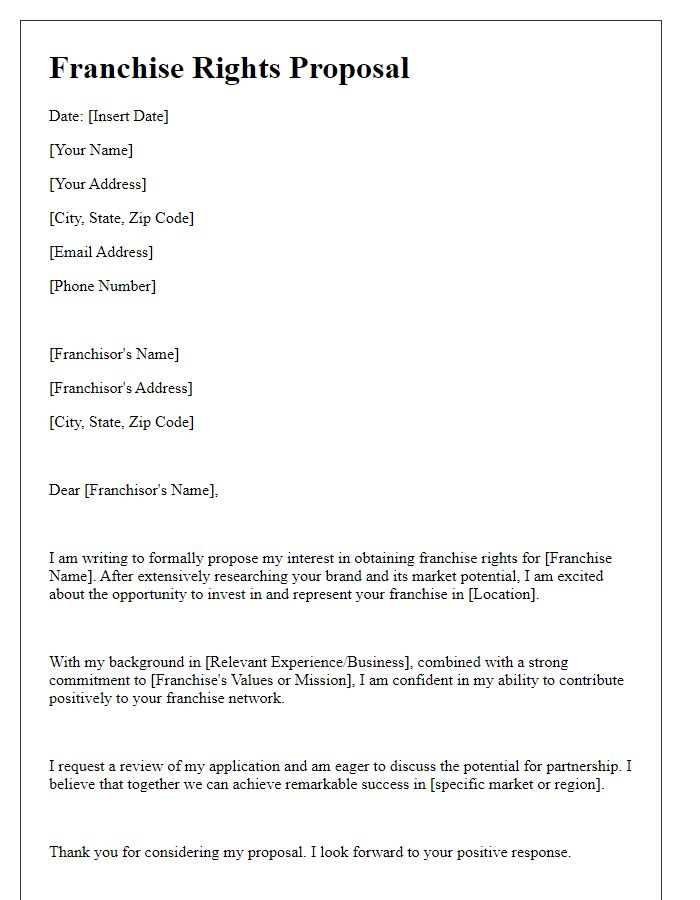
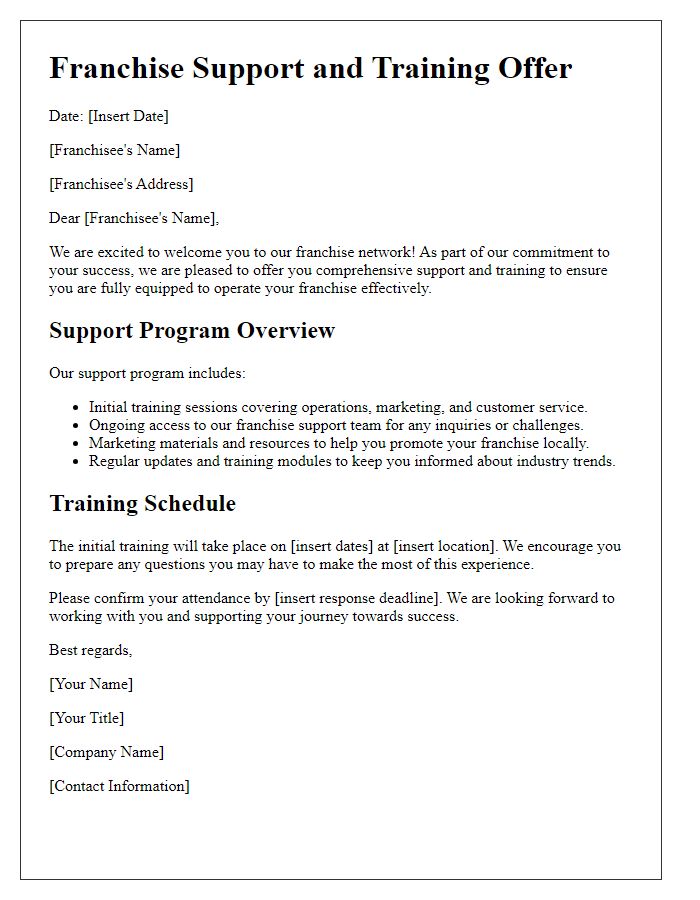


Comments